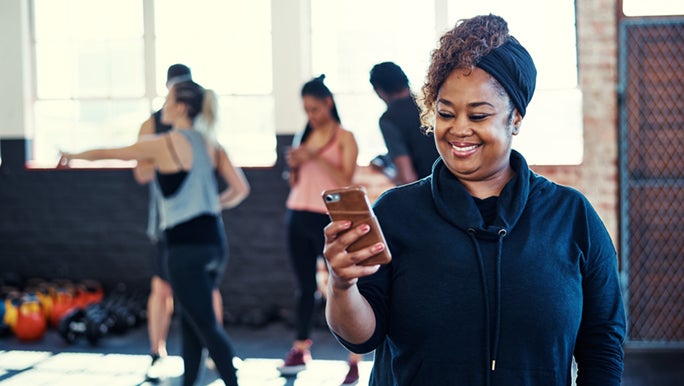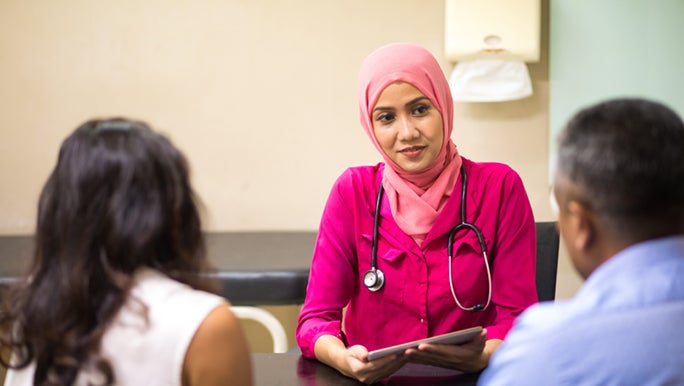Think back to those awkward school sex-ed classes. They mostly focused on puberty, pregnancy prevention and the anatomy, with no mention of positive sexual health elements like pleasure. The biological aspects of sex are important. But, there is so much more to sexual health than our reproductive systems, disease prevention and how it all works.
Sexuality is a fundamental part of the human experience for people of all genders and non-binary people alike. It’s one of the reasons why sexual health is so valuable for everyone.
It’s time to take a more holistic approach to explore what sexual health is, its importance and ways to be healthier. Think of this as a sexual health refresher to fill in some of those gaps from what you may have learned in your younger, pimplier years (although I’m still pimply as an adult, go figure?!).
Defining sexual health
There is no singular definition of what sexual health is, but there are some helpful working definitions. The World Health Organisation’s current sexual health definition is:
“a state of physical, emotional, mental and social well-being related to sexuality; it is not merely the absence of disease, dysfunction or infirmity. Sexual health requires a positive and respectful approach to sexuality and sexual relationships, as well as the possibility of having pleasurable and safe sexual experiences, free of coercion, discrimination and violence. For sexual health to be attained and maintained, the sexual rights of all persons must be respected, protected and fulfilled.”
The terms are often used interchangeably, but sexual health is different to reproductive health. So much so that a prominent academic journal changed its name in 2019 from “Reproductive Health Matters” to “Sexual and Reproductive Health Matters”.
Reproductive health has a strong focus on procreation and the functions and processes of our reproductive systems. Sexual health has a broader, positive focus on wellbeing, pleasure, safety and respect.
Sexologist, Chantelle Otten, says that sex can too often be defined by a limited perspective on what it actually is.

Sexual health has a broader, positive focus on wellbeing, pleasure, safety and respect.
“We sometimes miss that the definition of sex for many people is penis in vagina sex which is a very narrow view of what sex is because it rules out a whole part of the LGBTQIA+ plus community and the disability community,” Chantelle says.
“We need to look at the expansion of what sex is, talk about pleasure and do more pleasure education.”
Why sexual health is important for your overall wellbeing
Chantelle says sexual health is important as all humans should be able to have adequate, empowered, safe sexual practices.
“Sexual health is part of general overall health. It's not something that we can just neglect because it's a bit more taboo or has to do with what's going on in our knickers. It's still a part of the healthcare system.”
Being sexually healthy can improve your overall wellbeing. It may:
- help you live longer
- strengthen your immune system
- make falling asleep easier
- enhance your fertility
- relieve pain from menstrual cramps
- relieve pain from migraine headaches
- benefit your heart health
- lower your blood pressure
- reduce stress
With health benefits like that, it’s time to prioritise getting time between the sheets. Whether solo or partnered, your body will thank you for it!
Ways to be sexually healthy
Chantelle says there are many ways to be sexually healthy and everyone has different sexual health needs based on their preferences and informed choices
“It depends on what sex means to you but generally, being sexually healthy is to feel confident within your sexual rights, to be able to have safe sex, pain-free sex and sex that is full of pleasure,” she says.
To help you define what it means for you, here are some ways to be sexually healthy:
Communicate your sexual health needs
Awkward. That’s how many people feel talking about sex and sexual health. It could be that sex is more of a taboo topic (on par with talking about farting) in our society. Many factors influence how comfortable we feel talking about sex, including our:
- personalities
- values and beliefs
- history and experience
- emotions
- psychology
- cultural and religious backgrounds
Speaking about sexual health, whether with sexual partners, friends, or healthcare providers, can lead to more pleasurable, respectful and safer sex. Some important things for you to talk about with a sexual partner are:
- whether you both consent
- how recent your last sexual health check was
- if you have had and been treated for any sexually transmitted infections (STIs)
- safer sex precautions and birth control preferences
- wants, needs, expectations, desires and boundaries
Recognise and respect human rights related to sexuality
Understand and appreciate that you and everyone else has the right to gender equality, sexual orientation equality, respect, safety and freedom from all forms of discrimination, violence and stigma.
We all have the right to be in control of our bodies and to respect each other’s needs, desires and inherent value.

OMGYes is an online learning portal about the science of women’s pleasure based on the insights of over 2,000 women.
Experience sexual pleasure and satisfaction (if that’s what you want)
All too often, pleasure can be forgotten about when talking about sexual health. Feeling present can help increase your sexual pleasure. Mindfulness and other stress-reduction techniques can help get you in the mood to be in the moment.
Sometimes, body confidence and self-esteem issues can impact on our ability to have pleasurable, satisfying sex. It feels scary to put yourself out there, to be vulnerable and to nurture an appreciation of your own sexual desire, without judgement or shame.
Chantelle says that more pleasurable sex comes from having more of an understanding of our own bodies, noticing how we feel within our sex lives and having time for exploration as well.
“Try out different lubricants and sex toys. Explore your genitals, your other erogenous zones and work on that sexual self-esteem a little bit. Having confidence in your own eroticism is important,” says Chantelle.
Explore what turns you on by using sexual wellness apps like Dipsea, a female-founded audio platform for sexual wellness which has been described as the Headspace of erotica.
You could also try OMGYes. It’s an online learning portal about the science of women’s pleasure based on the insights of over 2,000 women.
From an inclusivity perspective, the research focused on vulva touch and was conducted with anyone who identifies as a woman. OMGYes also plan to do the first-ever research into the specifics of pleasure for people who have transitioned
Learn and understand more about sexual and reproductive health
What you’re doing right now (reading this) helps you learn more about your body, your needs, and what good reproductive health can look like. It also helps you realise when there might be an issue.
For women, knowing more about sexual and reproductive health can help to address any issues around libido, menstruation, fertility, pregnancy, peri-menopause and menopause.
For men, sexual and reproductive health knowledge can help address erectile dysfunction, delayed or premature ejaculation, prolonged erections, libido and infertility.
Knowledge for teens about their sexual and reproductive health is essential, including sexual consent, preventing STIs, contraceptive options, and support in exploring their sexuality and gender identity.

Getting regular sexual health checks is important, every 3 months if you’re sexually active. If you have symptoms, book an appointment with your healthcare provider right away.
Care for yourself and your partners to prevent sexually transmitted infections (STIs) and unplanned pregnancies
Practising safer sex is part of having a healthy sex life. Dr Jill Gamberg, GP, says that one of the safest ways to have sex is to use a condom.
“Condoms reduce your risk of getting and passing on STIs. They also protect against unplanned pregnancies,” Dr Jill says.
“Getting regular sexual health checks is also important. If you are sexually active, I recommend getting a sexual check every three months. If you have any symptoms, don’t wait that long. Book an appointment with your healthcare provider and get it checked out straight away.”
Your sexual health is valuable
Sex is a part of life. It impacts who we are and how we express ourselves. Sexual health can improve your wellbeing. Being sexually healthy involves understanding and respecting your own and your partner’s needs, desires and boundaries so that it can be both a pleasurable and safe experience.
“We will all have sexual health challenges. It’s how we work with those challenges and move past them rather than get caught up with them and letting them hold us back,” says Chantelle.
Your sexual health is valuable. If you are worried about anything, visit your GP or seek help from a sex therapist. Some private health insurance providers cover sex therapy.
Related:
Chantelle Otten is a Psycho-Sexologist and sex educator who is committed to removing the shame and taboo around sex, pleasure and relationships to empower people in their sexual healthm self-esteem and communication.
Dr Jill Gamberg is a General Practitioner and one of the first Australian Lifestyle Medicine Physicians whose goal is to help prevent disease and maintain wellness with evidence-based practice, and to passionately improve health literacy.
Reviewed by the healthylife Advisory Board June 2021



